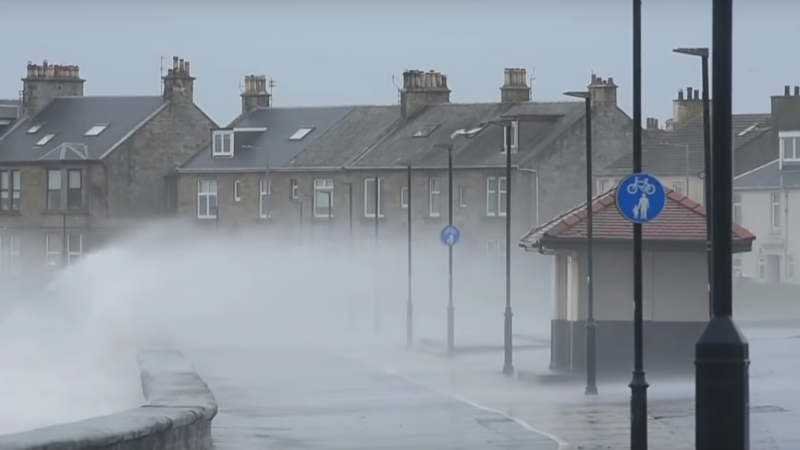The climate crisis is a concern among all communities and affects the most disadvantaged.

Campaigners have rejected Tory suggestions that working class voters don’t care about climate change and would “roll their eyes” at climate policies. A leak from Conservative MP’s WhatsApp group on Wednesday revealed the politicians believed that green government policies would cause them so-called ‘Red Wall’ seats.
As reported in the Sun, Jackie Doyle-Price said that Tories risked losing those voters by becoming ‘metropolitan’ while Karl McCartney claimed “petrol heads” would be among those “rolling their eyes” at the “idealism”.
But recent YouGov polling shows that among working-class voters, the environment is “the most important issue facing the country now” compared to 38% of their middle class counterparts. This would seem to contradict the claim that concern for the environment is an issue split along class lines.
Deputy head of the Institute for Public Policy Research’s environmental justice commission Becca Massey-Chase told LFF referred to a recently published report on a ‘people-powered plan’ for a green transition.
The suggestions in the report, which includes free public transport, subsidies to switch to green homes and jobs and giving the public a say in decisions, came from talking to “citizens’ juries”.
The cross-party commission spoke to people from “all walks of life”, including those initially not concerned about the climate crisis.
“But all of them wanted bold action from government because they saw the opportunity for better quality of life, better jobs, improved wellbeing, if the government takes action on the climate and nature emergency that puts fairness at the heart of the action that it takes.
“How we go about tackling the climate and nature emergency is not a middle-class only concern. The action is needed to reduce emissions and support the natural world — it is about to affect our day to day lives more and more.
“The changes that are needed, like how we heat our home, how we travel, what we eat, those are the things that are about to change. But the benefits to those things, like warmer homes and cleaner air, they stand to benefit people who are currently the most disadvantaged by the status quo,” she said.
A real concern is that the cost of those changes would fall on those who could least afford it, which is why the report called for the costs not to fall on the individual but rather on the government.
“What people want is to have a stake in decisions that affect them, they want to have a say, they want to feel involved. That’s the real key concern, there are some who have been left behind. It’s not that they’re not worried about the environment, it’s that they’re concerned about their lives and their wellbeing,” said Becca Massey-Chase.
“Everybody that we spoke with at the end of it were all saying ‘I wish we knew this, why doesn’t it have the prominence in the national conversation that it should’. Some of them compared it to the pandemic and called for a similar public information campaign and similar level of urgency in the action.”
A Friends of the Earth spokesperson told LFF: “Politicians are getting this very wrong if they think certain demographics don’t care about climate change. Demographics aren’t focus groups and graphs, we are talking about people, and we are all affected by climate change now, or are about to be.
“What this should show some in government is that people know and care about climate change, and what it’s doing. And they want decision-makers to take responsibility in whatever tier they can: local, at Mayoral level, and certainly in No 10.
“At that level, national policy is needed to do things like make grants available for heat pumps. We need to slash emissions, and help poorer countries do the same, these are the long term solutions. Climate change is here and it’s real, it’s not about short-term electoral concerns like metropolitan elites or red walls, it’s about the future of the planet.”
The UN’s climate change report, published on Monday, gave the starkest yet warning in a ‘code red’ for humanity. In the report scientists warned that the climate crisis is already ‘unprecedented’ and ‘sometimes irreversible’.
Sophia Dourou is a freelance journalist
Left Foot Forward doesn't have the backing of big business or billionaires. We rely on the kind and generous support of ordinary people like you.
You can support hard-hitting journalism that holds the right to account, provides a forum for debate among progressives, and covers the stories the rest of the media ignore. Donate today.



